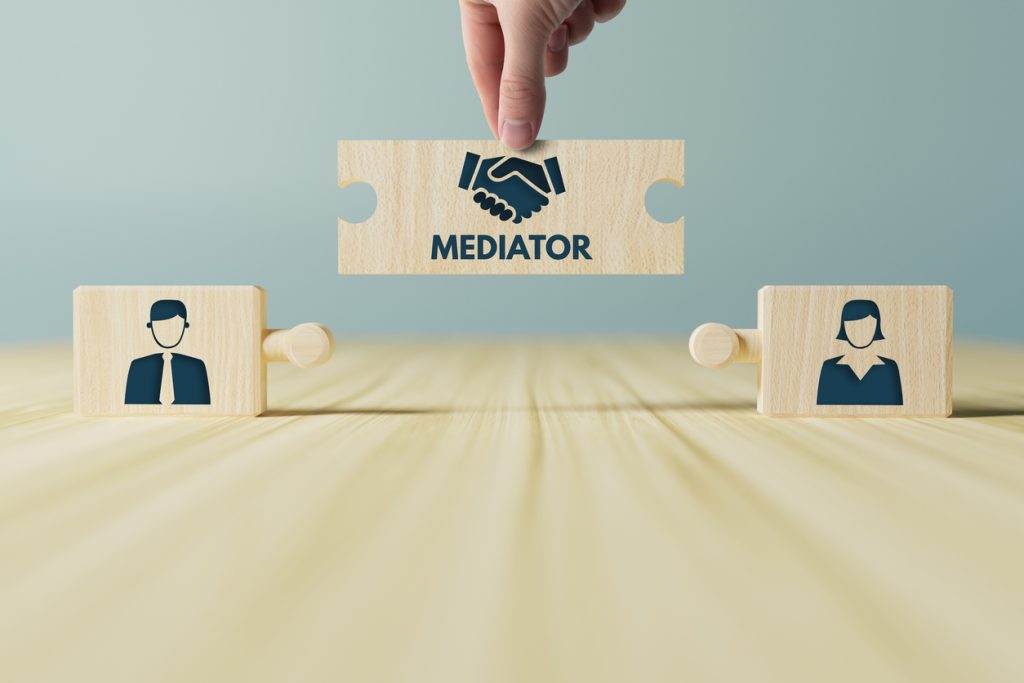Navigating the emotional and legal landscape of child custody can be overwhelming for any parent. While courtrooms may seem like the default arena for resolving such disputes, child custody mediation in Florida has increasingly become the preferred alternative. But for those entering mediation for the first time, one pressing concern frequently arises: Is the process truly confidential?
Understanding the privacy protections in place—and their limits—is essential for parents preparing for mediation. Whether you’re concerned about sensitive information being used against you later or simply seeking a safe space to negotiate terms, this guide explains everything you need to know about confidentiality in child custody mediation in Florida.
The Confidential Nature of Child Custody Mediation in Florida
Florida law has long recognized the sensitive nature of family disputes. For that reason, child custody mediation in Florida is structured around a strong commitment to confidentiality. This allows parents to speak openly, propose ideas freely, and explore compromise without fear that statements made during mediation will later resurface in court.
The relevant legal framework is outlined in Florida Statutes § 44.102, which governs court-ordered mediation in family law matters. According to this statute, communications during mediation sessions are considered privileged and are not admissible as evidence in future proceedings. This legal shield ensures a private and safe environment for negotiation.
Why Confidentiality Matters in Custody Mediation
Confidentiality is the bedrock of effective mediation. Without it, parties may hesitate to fully participate or disclose relevant information. In child custody mediation in Florida, confidentiality enables parents to discuss emotionally charged issues such as parenting schedules, discipline philosophies, and relocation concerns in a protected setting.
Mediators are trained to establish ground rules at the beginning of each session, emphasizing that the process is not adversarial. The confidential nature of mediation fosters a more cooperative dynamic, reducing the likelihood of courtroom conflict.
In high-conflict custody cases, maintaining confidentiality can also help preserve fragile co-parenting relationships. By keeping sensitive conversations private, mediation supports long-term collaboration between parents.
Legal Protections for Mediated Communications
When parents attend child custody mediation in Florida, they can rely on the protections guaranteed by the Florida Rules for Certified and Court-Appointed Mediators. Rule 10.360 of the Florida Rules for Certified and Court-Appointed Mediators specifically outlines the mediator’s duty to maintain confidentiality. Mediators are prohibited from revealing statements made during mediation unless both parties agree or a specific exception applies.
Additionally, under Florida Statutes § 44.405, mediators cannot be compelled to testify about what occurred in the session. This means that even if a case returns to court, the mediator cannot disclose what was discussed, suggested, or rejected during mediation.

Exceptions to Confidentiality in Florida Custody Mediation
While the confidentiality of child custody mediation in Florida is robust, it is not absolute. There are legal exceptions that permit or require disclosure in limited circumstances. These include:
Statements indicating intent to commit a crime
Admissions or suspicions of child abuse or neglect
Threats of bodily harm to oneself or another
Information necessary for mandatory reporting under Florida law
In such instances, the mediator has a legal obligation to break confidentiality. Parents should be aware of these exceptions before beginning the process to avoid misunderstandings.
What Can Be Used in Court and What Cannot
One of the main benefits of child custody mediation in Florida is that proposed agreements, concessions, or statements made during the session cannot be used against a parent in court. For example, if a parent suggests a shared parenting schedule during mediation, but later changes their mind, the initial suggestion cannot be used as evidence of their position or intentions.
However, if both parties reach a full or partial agreement and sign a mediated settlement, that document may be submitted to the court for approval. Once approved, the terms become enforceable just like any court order.
Parents should also be aware that documents voluntarily introduced during mediation, such as medical records or school reports, are not automatically protected unless the parties agree otherwise. Discussions are protected, but outside documentation may still be admissible in court under other evidentiary rules.
Voluntary vs. Court-Ordered Mediation: Does It Affect Confidentiality?
Whether parents voluntarily opt for mediation or are ordered by the court, the confidentiality rules remain largely the same. In both settings, mediators are bound by ethical and legal obligations to protect the privacy of discussions.
In court-ordered child custody mediatioreview the top 5 benefits of child custody mediation in Florida and how they can improve outcomes for children and parentsn in Florida, however, parties may be required to file a certificate of completion. This filing does not reveal the content of the session, only that it occurred. The court will not inquire into what was discussed or why an agreement was or wasn’t reached, preserving the integrity of the confidentiality rule.
Mediators’ Ethical Duties and Confidentiality Obligations
Florida mediators must adhere to a strict code of ethics outlined in the Florida Rules for Certified and Court-Appointed Mediators. These rules obligate mediators to maintain impartiality and confidentiality at all times. Violating these duties can result in sanctions or removal from the court’s list of approved mediators.
When a mediator is involved in child custody mediation in Florida, they must refrain from disclosing any detail from the session—even under pressure from either party. This ethical framework helps reinforce trust in the mediation process and protects both parents from undue influence or retaliation.
How Confidentiality Affects Parenting Plans
During child custody mediation in Florida, parents often draft proposed parenting plans. These documents outline time-sharing arrangements, school selection, medical responsibilities, and communication guidelines. Discussions about these topics are confidential while mediation is ongoing.
If a parenting plan is finalized and submitted to the court, it becomes part of the public record. However, the negotiation process that led to the final version remains protected. This distinction ensures that mediation continues to serve its intended role as a confidential negotiation forum, while still resulting in enforceable, court-recognized outcomes.
To better understand how parenting plans form a critical part of the mediation process, review the top 5 benefits of child custody mediation in Florida and how they can improve outcomes for children and parents alike.

Can Mediators Be Called to Testify?
One of the strongest pillars of confidentiality in child custody mediation in Florida is the immunity mediators enjoy from being called as witnesses. Unlike other professionals, mediators are not permitted to testify in court about what was said, done, or agreed upon in a session.
This rule not only protects the parties from unexpected disclosures but also allows mediators to maintain neutrality. The Florida court system reinforces this protection to encourage open, honest dialogue and efficient resolution of family conflicts.
Long-Term Benefits of Confidential Custody Mediation
Confidentiality encourages candor, reduces hostility, and promotes practical solutions. Parents who feel safe expressing concerns during mediation are more likely to reach creative and personalized agreements. This collaborative spirit often results in stronger, longer-lasting parenting arrangements.
By promoting open communication and mutual respect, child custody mediation in Florida fosters better post-separation relationships between co-parents. Children benefit when their parents can cooperate, and confidentiality plays a significant role in making that cooperation possible.
What if a Party Violates Mediation Confidentiality?
Breaching confidentiality in child custody mediation in Florida can have serious legal consequences. If one party discloses confidential information without legal justification, they may face court sanctions or jeopardize their position in the custody case.
Courts are particularly protective of the confidentiality of mediation proceedings. Violations can undermine the mediation process and negatively impact a party’s credibility before the judge.
Confidentiality and the Florida Court System
Florida’s court system supports mediation through programs administered by the Florida Dispute Resolution Center, a division of the Office of the State Courts Administrator. These programs adhere to strict confidentiality protocols and are often funded by the state to make mediation more accessible.
To explore more about Florida’s official stance on confidentiality and mediation, review guidelines published by the Florida Courts. These resources offer authoritative insight into how the system maintains privacy in family law disputes.

Emotional and Practical Advantages of Confidential Mediation
When parents know that their statements won’t be used against them, they are more likely to cooperate. Confidentiality empowers families to focus on solutions rather than on protecting legal positions. As a result, mediated agreements tend to be more effective and less likely to be contested later.
Parents participating in child custody mediation in Florida report feeling less anxious, more understood, and better equipped to co-parent effectively. Confidentiality directly contributes to these emotional outcomes.
Conclusion: Confidentiality as the Cornerstone of Custody Mediation
For any parent facing a custody dispute, the knowledge that mediation is confidential provides reassurance and clarity. Child custody mediation in Florida offers a legally protected space where sensitive issues can be addressed with dignity and privacy. This foundational principle not only streamlines the resolution process but also enhances the likelihood of cooperative parenting.
By preserving the confidentiality of each session, Florida’s mediation system fosters a safe, solution-oriented environment for families. If you’re preparing for a mediation session, understanding your rights and protections is the first step toward reaching a fair and lasting resolution.
To learn more about how mediation is evolving and why more families are choosing confidential alternatives to court battles, be sure to read Family Mediation Services in Tampa Gaining Popularity for additional insights into the growing mediation landscape.

Leave a Reply